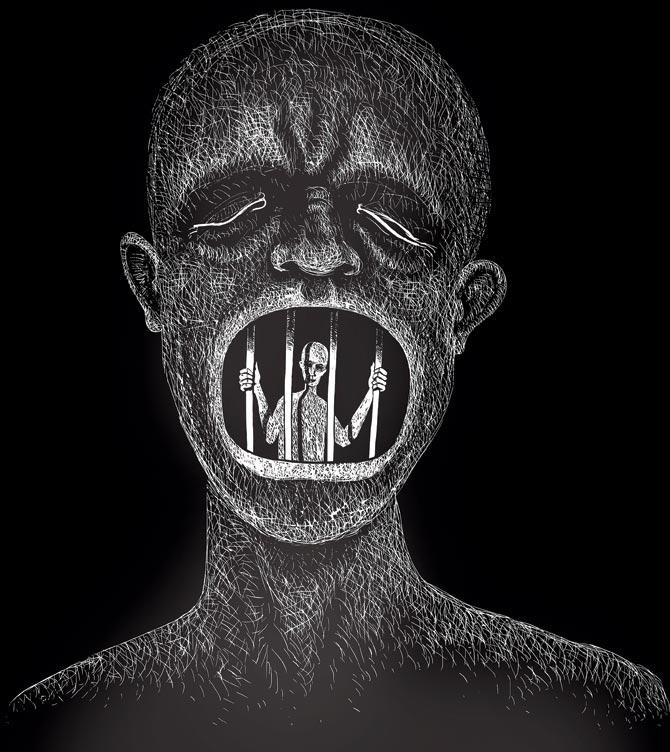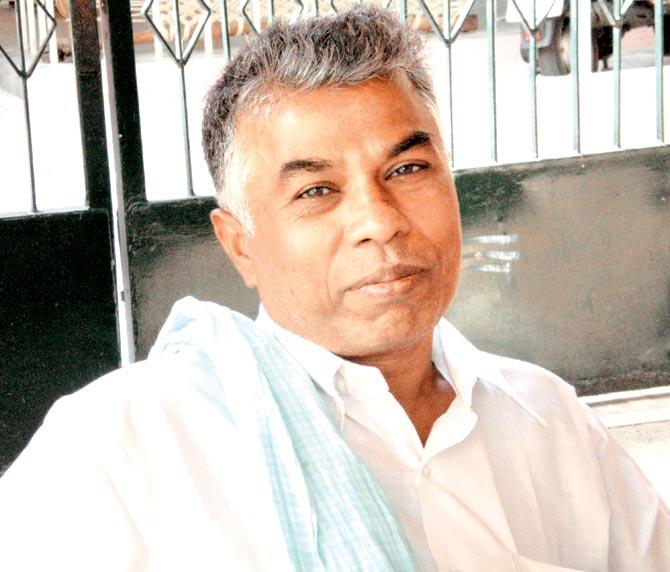Fresh out of the controversy around his novel Madhorubhagan, writer Perumal Murugan discusses how his new collection of poems helped him survive a nightmare and come back from the dead

Back in 2015, when the Hindutva brigade led a raging protest against the Tamil novel Madhorubhagan (2010), they almost, successfully managed to silence one of South Indian literature's most accomplished voices. The slew of criminal charges filed against the author on the grounds of obscenity, spreading disharmony between communities, blasphemy, and defamation, prompted something that nobody saw coming.

ADVERTISEMENT
"Perumal Murugan, the writer is dead. As he is no God, he is not going to resurrect himself. He has no faith in rebirth. As an ordinary teacher, he will live as P Murugan. Leave him alone," read an emotional Facebook post by the book's author, which faced criticism for it's bold portrayal of a childless couple, desperate to conceive. Murugan did not stop there. He demanded that his publishers stop printing and selling his work and promised to compensate them for the unsold books. To his readers, he implored, "Those who have bought my books, consign them to the flames."
Two years on, days after the release of the English translation of his new collection of poems, Songs of a Coward (Penguin Books India), the hurt and pain still lingers, but writer Murugan appears to have moved on, even if reluctantly. He continues to post on Facebook, where he has a small, but significant following of 6,300 people, and the messages now are mostly positive. "It is a period I wish to forget about. Honestly, I am not in a frame of mind to speak about it," says the writer in an email interview, which he chooses to do only in Tamil, the language that he can articulate himself best in.

Perumal Murugan
His new collection, which comprises 210 poems, has been translated by Aniruddhan Vasudevan, who in April this year won the Sahitya Akademi for One Part Woman, the translation of Murugan's controversial novel, which first pushed the author on a self-imposed exile. "He wrote these poems during a period when he was struggling to find his bearings, trying to make sense of all that was happening to his life and how it might affect his existence as a person and writer. We clearly hear the journalling voice in these poems; they record private emotions, acute vulnerability and a constant sense of cautiously moving around a space to see how hospitable, inhabitable and welcoming it might be — or not," says Vasudevan in the book. The turmoil is evident as Murugan's deeply personal poems, all dated, begin on the day he first went into exile, and end with Judgement Day, incidentally written on July 5, 2016, just before the Madras high court order on his book. "I anxiously await the word that will soon issue forth from the lips of God. God's language only has good words, doesn't it?" the short verse reads.
That the high court lifted the ban on Madhorubhagan, cemented a good end, to an otherwise nightmarish journey, which Murugun painfully narrates in verse. "The HC order restored my belief in the judicial system," he tells us. "In the scenario that I was in, there was nothing, but faith to cling on to."
The award-winning writer, who is also a professor of Tamil literature, aptly describes the collection as sumaithangi, which in English means "the thing that holds your burden", and is used to describe a stone structure with a roof that was used as a place of rest by weary travellers in ancient India. "My poems served as a sumaithangi and helped ease my pain. In these circumstances, it was how I could make sense of what was happening around me. There is a joy in writing poetry. It is the closest representation of the mind," he admits, adding that Vasudevan imbued new vision and life to these poems. "He is essentially a creator and an artist himself. It's been enjoyable to work with him, because he is so open to ideas."
Murugan confesses that though he has been writing for long, Songs of a Coward is very different from his past work. "There is a certain, frenzied energy to this collection. The language is simple, easy and holds together. In fact, this is the first time I have written so much in such a short span," Murugan says of his short verses. What, however, is most moving about this collection, is the number of times Murugan looks inward, almost admonishingly. Sometimes referring to himself as a "coward", and on one occasion, also a "strange beast", we see the writer reflect on how he had suddenly become a threat to his very own people. "Someone has painted over my head a pair of horns everyone can see, someone has turned me into a strange beast," he writes.
When we ask him of this, he says, "There is nothing wrong in calling oneself a coward. One doesn't have to be brave or fearless to tell his or her story. Our experiences will change with time, and we must talk about it," says Murugan. He ends, "At the end of the day, the collection will mean different things to different people." For Murugan though, the collection will always be his most cathartic journey yet.
 Subscribe today by clicking the link and stay updated with the latest news!" Click here!
Subscribe today by clicking the link and stay updated with the latest news!" Click here!







